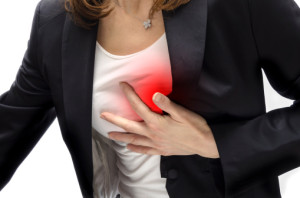Amphetamine is sometimes used for medicinal purposes, especially to treat ADHD in adults and children. However, the addictive nature of the drug and the fact that it is so often abused can lead to amphetamine overdose. If someone you know is taking amphetamine, whether by prescription or for recreational purposes, make sure you know the signs, symptoms, and effects of amphetamine overdose.
Amphetamine
CESAR states that “amphetamine is made up of two distinct compounds: pure dextroamphetamine and pure levoamphetamine.” The mixture can be very potent, especially because of the inclusion of dextroamphetamine. Often, amphetamine and dextroamphetamine are used together in prescription medications such as Adderall to treat ADHD. Amphetamine can be habit-forming so a patient using the drug must not deviate from his or her doctor’s prescribed dosage.
There is also a “collective group of amphetamines” which includes “amphetamine, detroamphetamine, and methamphetamine.” All of these drugs are highly addictive, and someone who strays from his or her dosage even the smallest bit has the possibility of becoming addicted. Many people also abuse amphetamine or other amphetamine drugs in order to:
- Lose weight
- Get high
- Focus and study for several days straight
- Stay awake for several days straight
- Counteract the effects of sleeping pills, opioids, or other medications
For all these reasons, amphetamine users and abusers have a high potential of overdosing. The more amphetamine a person is using, the higher this chance will be. Someone who is addicted to amphetamine will also build up a tolerance to the drug, taking more of it each time. Abuse of amphetamine makes overdose more likely.
Effects of Amphetamine Overdose

An overdose on amphetamine causes cardiac damage.
According to USC, “symptoms of intoxication, overdose, and abstinence” for amphetamine are “similar to those of cocaine.” If you believe that someone you know has overdosed on amphetamine, check for these effects:
- Dry mouth
- Vomiting
- Nausea
- Dilated pupils
- “Excessive sweating”
- Increase in talking or hyperactivity
- Increase in temperature
- Flushing of the skin
According to the NLM, amphetamine and dextroamphetamine overdose can also result in:
- Hallucination
- Fast breathing
- “Dark red or cola-colored urine”
- Weakness in muscles
- Fainting
- Dizziness
- Diarrhea
- Confusion
- Strange behavior
People who overdose on stimulant drugs experience mood swings and delirium which makes it difficult to care for them. They might also become irritable, violent, or aggressive.
Complications Caused by Amphetamine Overdose
Amphetamine overdose can cause many complications which is why it is so important to call 911 immediately when you believe someone has overdosed on this drug. Some of the complications caused by amphetamine overdose are:
- Coma
- “Cardiovascular collapse” (USC)
- Hypertension
- Toxic psychosis
- Seizures
- Respiratory failure
- Stroke
- Heart attack
Amphetamine overdose can often lead to death because of the severe complications associated with high doses of the drug. The ADF also states that overdosing on amphetamine can often be attributed to “taking amphetamines with other drugs, especially depressant drugs such as sleeping pills, cannabis, or alcohol.” This only succeeds to worsen the effects of amphetamine overdose and cause more complications to occur.
If you believe someone you know has overdosed on amphetamines, call 911 immediately and get him or her medical treatment as soon as possible.
